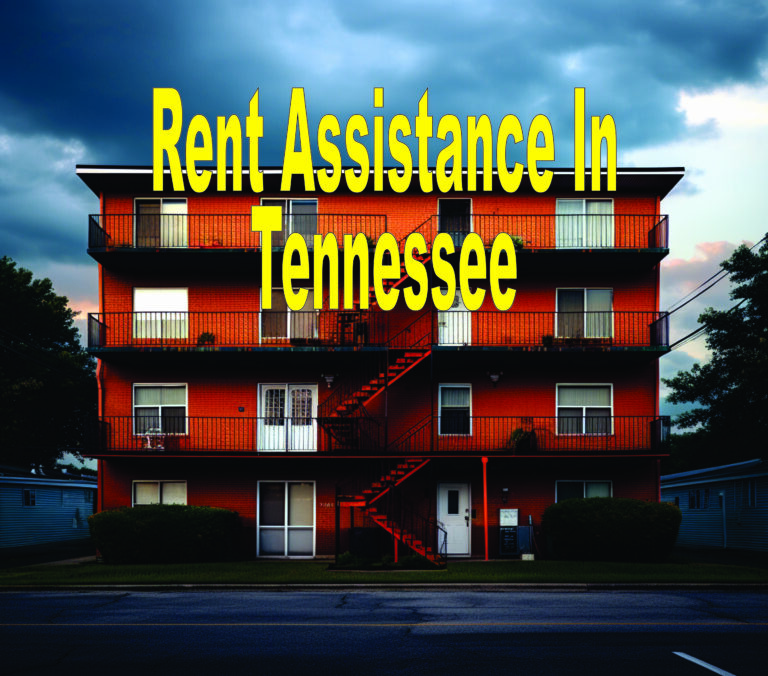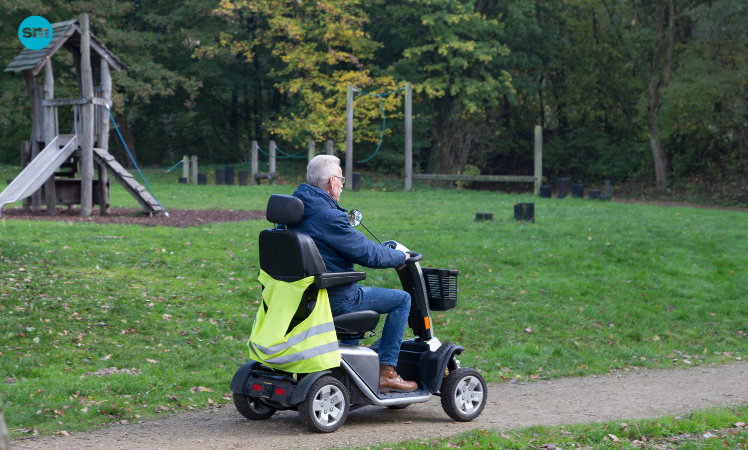Assistance Programs For Relocation

Last Updated on January 22, 2024 by Lori Pace
If you’re planning to relocate, you’re aware that it can be a stressful and expensive process. Fortunately, there are assistance programs available to help ease the financial burden. These programs can help cover expenses such as rent, security deposits, and moving costs.
In this article, we’ll explore some of the most commonly available assistance programs for relocation, their eligibility requirements, and alternative options if you don’t meet their criteria.
One of the most well-known assistance programs is the Housing Industry Foundation’s Emergency Housing Fund, which provides financial aid to low-income individuals and families who are facing homelessness or at risk of losing their homes. Another program is the Emergency Solutions Grants (ESG) program, which provides funding to organizations that help individuals and families who are experiencing homelessness or at risk of becoming homeless.
These are just a few examples of the many assistance programs available for those who need help with relocation costs.
Housing Industry Foundation’s Emergency Housing Fund
The Housing Industry Foundation’s Emergency Housing Fund is a nonprofit organization that provides financial assistance to help low-income families and individuals who are facing the financial burden of relocation due to natural disasters, job loss, or other unforeseen circumstances. It allocates one-time grants of up to $2,500 for those in need.
The Emergency Solutions Grants (ESG) program
The ESG program provides funding to assist needy individuals who are homeless or at risk of becoming homeless with emergency housing, as well as support services to help them regain stability.
This government-funded program targets to reduce the cases of homelessness by providing emergency shelters, street outreach, rental assistance, and housing relocation assistance.
Federal Relocation Assistance Program
Under the Federal Emergency Management Administration (FEMA), the Federal Relocation Assistance Program aims to provide assistance for relocation expenses to low-income families and individuals affected by natural disasters.
The disaster event must be presidentially declared to qualify. In addition, the ocular home inspection is conducted to assess the scope and estimated amount of damage to your property.
VA Housing Assistance
If you’re a veteran struggling to find affordable housing, the Veteran Association offers housing assistance and refinancing loans through various programs and charity organizations. These programs include subsidized housing, transitional housing, and relocation assistance for disabled veterans.
Administration for Community Living (ACL) Grants
The ACL grant is specifically aimed at helping states and non-profit organizations involved in caring for elderly and disabled people. The federal government administers this program and provides discretionary grants for various programs to provide a more comfortable community living environment.
USDA’s Rural Housing Service
The Rural Housing Service provides loans, grants, and loan guarantees for low-income individuals and families who want to purchase, repair, or build a home in rural areas. This program also assists with relocation by offering grants for transportation costs and security deposits.
This is an excellent option for those who want to live in rural communities and need assistance with financing their homes.
Real Estate Acquisition and Relocation Program
The Real Estate Acquisition and Relocation Program, or the REAP, offers funding for the acquisition, rehabilitation, or demolition of real property for federal projects. Thus, providing a lifeline for those affected by such projects.
This program can be a crucial source of support for low-income individuals and families facing relocation expenses due to a federal project. The program is designed to help those who may experience financial setbacks or temporary crises due to the relocation process.
HUD Housing and Rental Assistance
You can find affordable housing and rental options through this program initiated by Housing and Urban Development, which offers various resources to help low-income individuals and families. These programs include private and public housing rental assistance, the Housing Choice Voucher program, and FHA mortgage options.
Community Services Block Grant (CSBG)
You may not know it, but the Community Services Block Grant (CSBG) is a federal program that funds community-based organizations to help low-income individuals and families achieve self-sufficiency.
The CSBG offers assistance programs for relocation, including grants to help with moving expenses. To qualify for this grant, you must meet income limits set by the federal government and work with local housing agencies to find suitable housing.
Modest Needs
The Modest Needs program is one of the most flexible relocation assistance available for low-income individuals and their families. The program offers a one-time grant of $750 up to $1,250. However, know that the money is not directly handed over to the recipients. Instead, the amount is used to pay out the service providers and vendors you have utilized during your relocation.
211
The 211 program is not a financial grant in itself. Rather, it is a national hotline you can utilize to connect to local and community-based services to help you move or relocate. Aside from that, you can also call the 211 hotline to learn more about the various supports available in your area.
YWCA
The mission of the YWCA is to empower women to become self-sufficient, and they do so by offering comprehensive assistance to those in need. This leading organization offers various housing-related assistance programs, including relocation of individuals experiencing domestic abuse situations or facing a housing crisis due to their low-income status.
Catholic Charities
With Catholic Charities, you can receive compassionate support and guidance during difficult times. As one of the leading national nonprofits, Catholic Charities offers need-based assistance programs for relocation that can benefit families and businesses alike.
Salvation Army
For those needing financial aid for moving expenses, the Salvation Army can provide assistance through its various short-term and long-term support services. Their relocation assistance program offers help with relocation costs, expense reimbursement, emergency rental assistance, and transitional housing.
The IRS Moving Expenses Deduction For Military Families
Military families can benefit from the IRS Moving Expenses Deduction program, which can provide financial relief during periods of stressful relocations. This assistance program is available to active military members who are relocating due to a permanent change of station.
The deduction allows military families to deduct the costs associated with moving, including transportation, lodging, and storage expenses, from their income, which is tax-free. This can be particularly helpful for families who are on a low-income status and need extra financial support during their relocation.
How to Apply for Relocation Assistance Programs
Eligibility for moving assistance depends on meeting certain requirements, making it important to understand the qualifications. To help you get started, here are four things to keep in mind when applying for modern relocation assistance programs:
1) Income limits and eligibility documentation may vary by program and location.
2) Some programs require an online application, while others may accept individual applicants by phone or in person.
3) Many programs offer short-term aid, but some may also provide long-term housing assistance and support.
4) Many organizations can help you navigate the application process and connect you with the resources you need to make your move successful.
Alternative Options for Moving Assistance Programs
Looking for other ways to get help with your move? You can reach out to your county government or local religious organizations for assistance.
Additionally, researching job relocation packages from potential employers can provide financial support for your move. Online applications and hotline phone numbers are available for government-funded programs, and a benefits finder can help you identify other types of assistance that may be available.
If you need help with rent or buying a home, check with your local agency for approval and find the agency closest to you. Ultimately, many options are available to help ease the financial burden of moving, so don’t hesitate to explore all of your options.
Frequently Asked Questions
How much financial assistance can military families receive for their moving expenses through the IRS deduction?
You can receive a tax deduction for certain moving expenses if you are a military member and meet certain criteria. The amount of the deduction will depend on your individual circumstances and expenses.
What specific services do the YWCA and Catholic Charities offer for relocation assistance?
The YWCA and Catholic Charities offer various services if you’re looking for relocation assistance. These can include help with finding housing, job training and placement, and financial assistance. Contact them directly for more information.
Are there any income or residency requirements for the Real Estate Acquisition and Relocation program?
You may be eligible for the Real Estate Acquisition and Relocation Program if you meet income and residency requirements. Contact your local agency for more information on eligibility criteria and how to apply.
Does the Emergency Solutions Grants (ESG) program provide assistance for temporary housing?
Yes, the Emergency Solutions Grants (ESG) program can provide assistance for temporary housing. You may be eligible if you are homeless or at risk of becoming homeless due to a crisis such as a natural disaster or domestic violence.
What other organizations or resources can individuals turn to for relocation assistance if they do not qualify for the programs listed in the article?
If you don’t qualify for the listed programs, you can contact local non-profit organizations or community action agencies. You may also be eligible for federal or state housing assistance programs or consider crowdfunding or personal loans.
Conclusion
In conclusion, if you’re a low-income individual or family in need of relocation assistance, there are numerous programs and resources available to help alleviate the financial burden of moving.
From emergency housing funds and grants to discounted moving services, there are options to fit your specific needs.
It’s important to research and understand the eligibility requirements for each program before applying.
Additionally, consider alternative options such as reaching out to local charities or religious organizations for assistance.
With the right resources and support, relocating can become a smoother and less stressful process.





